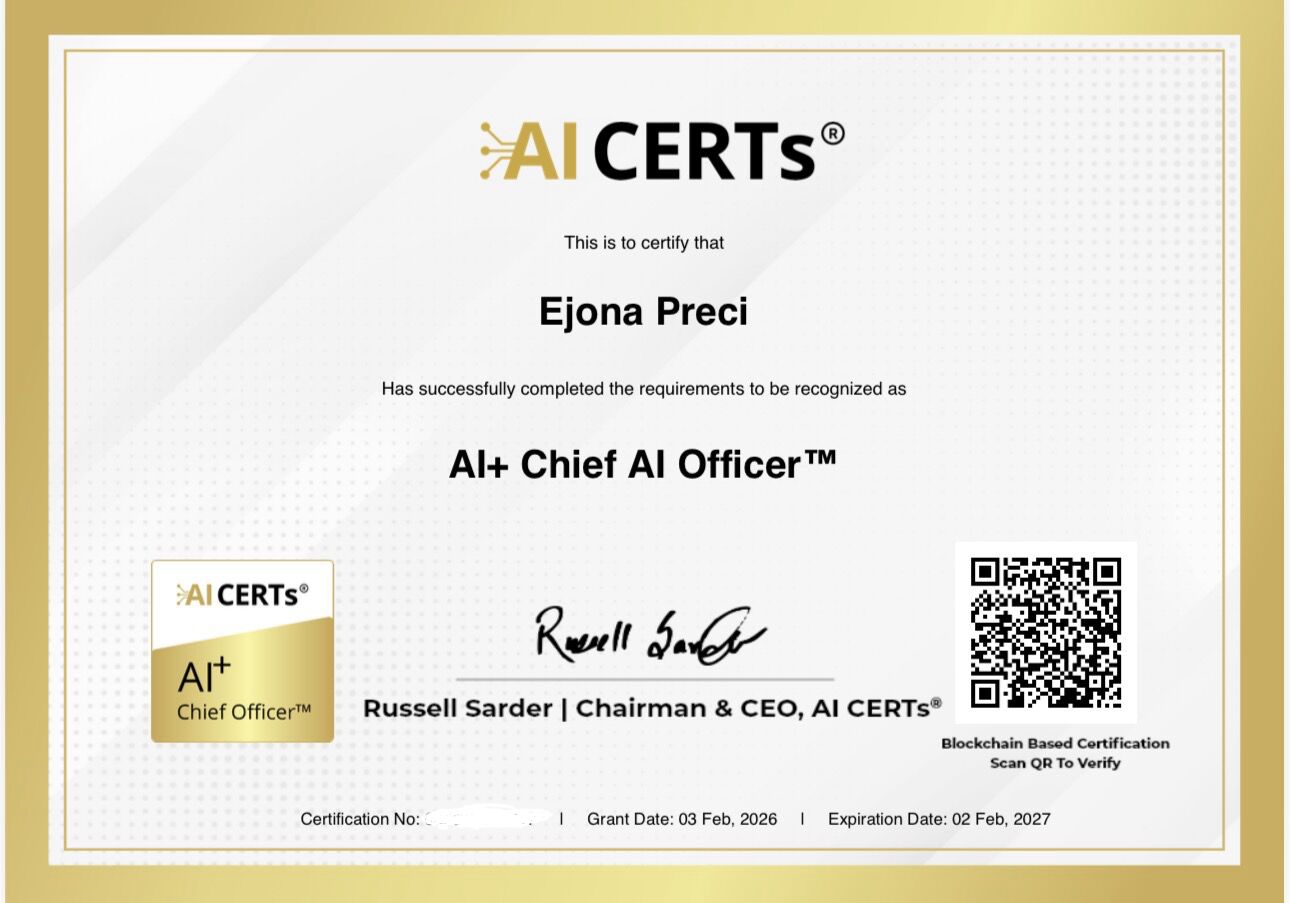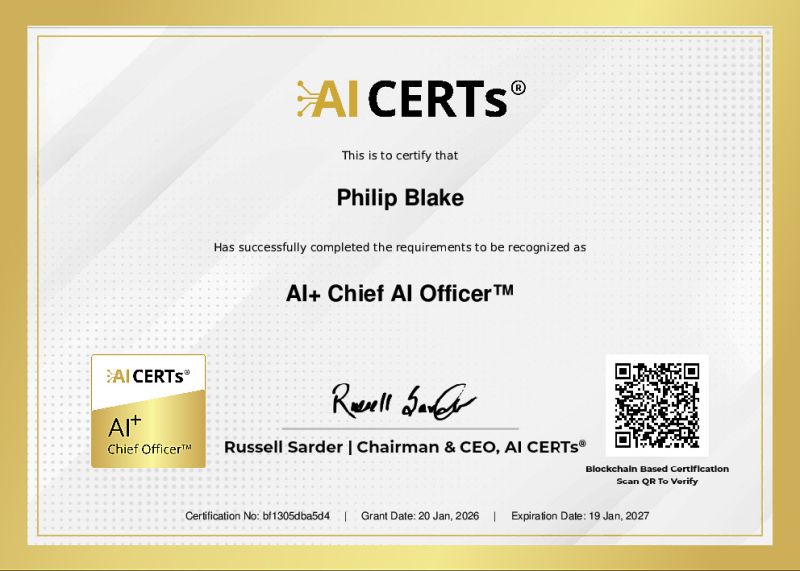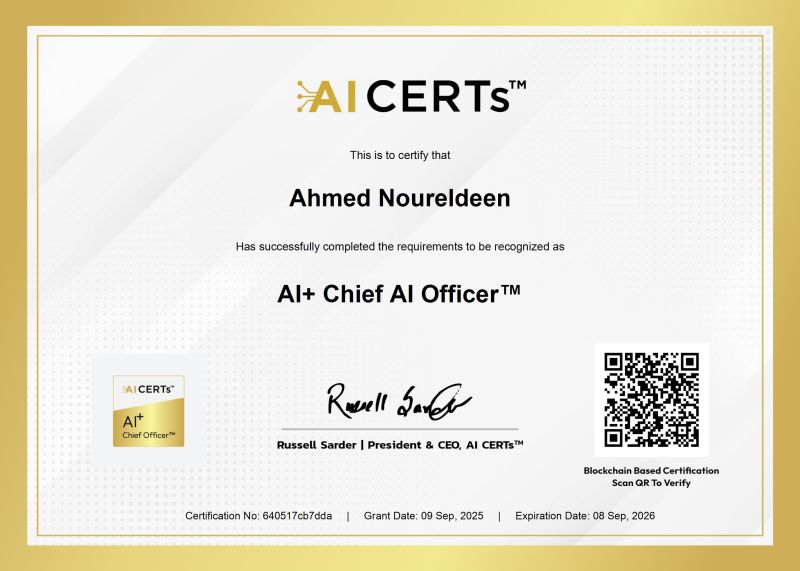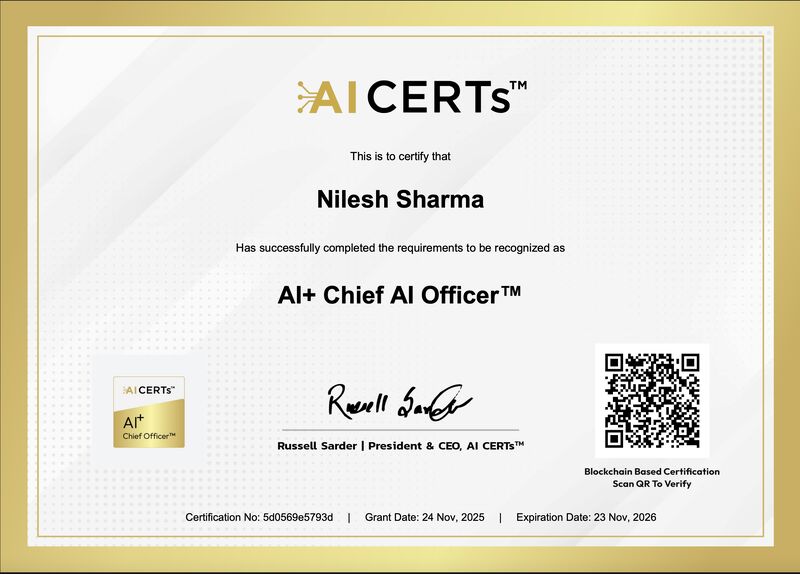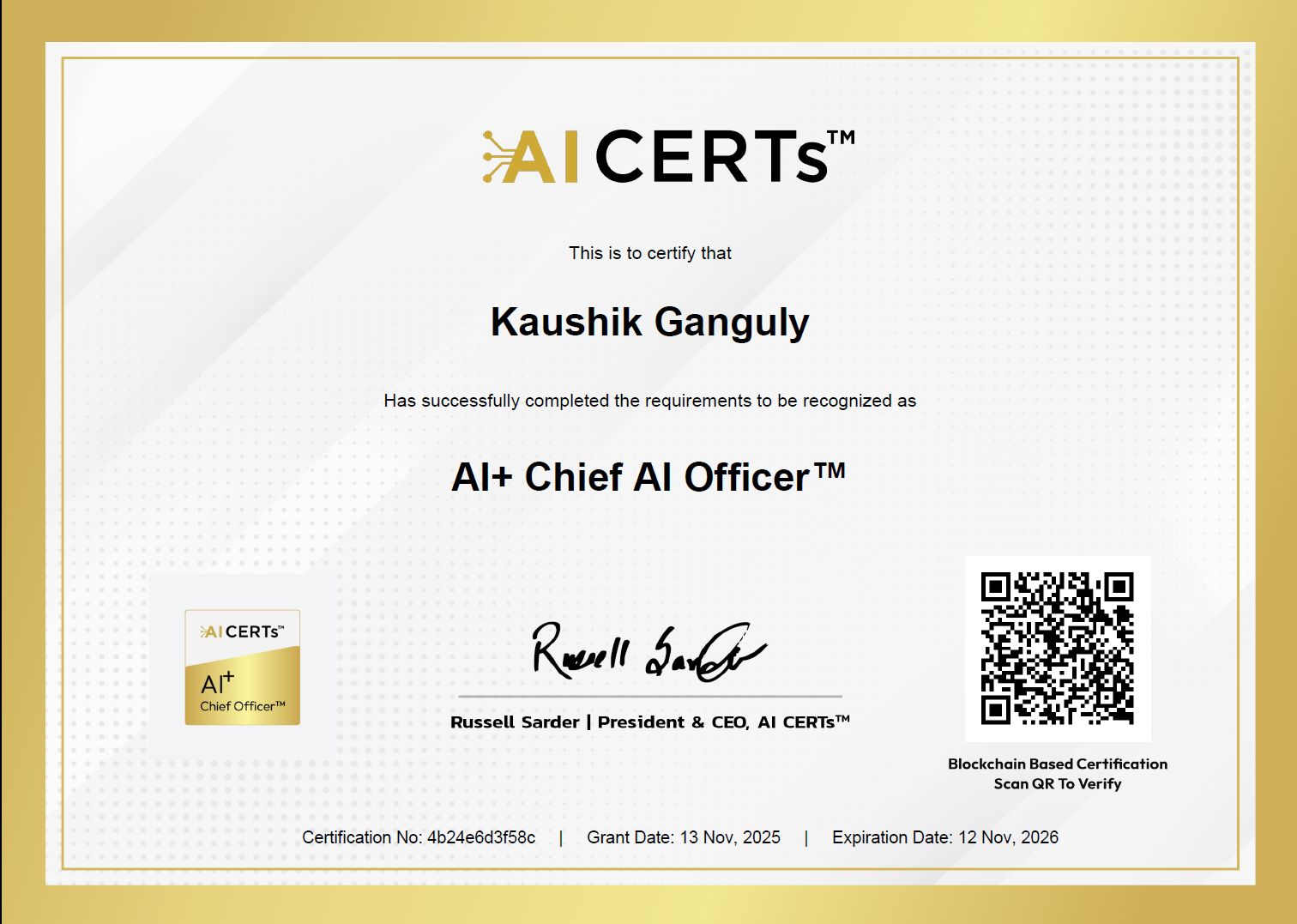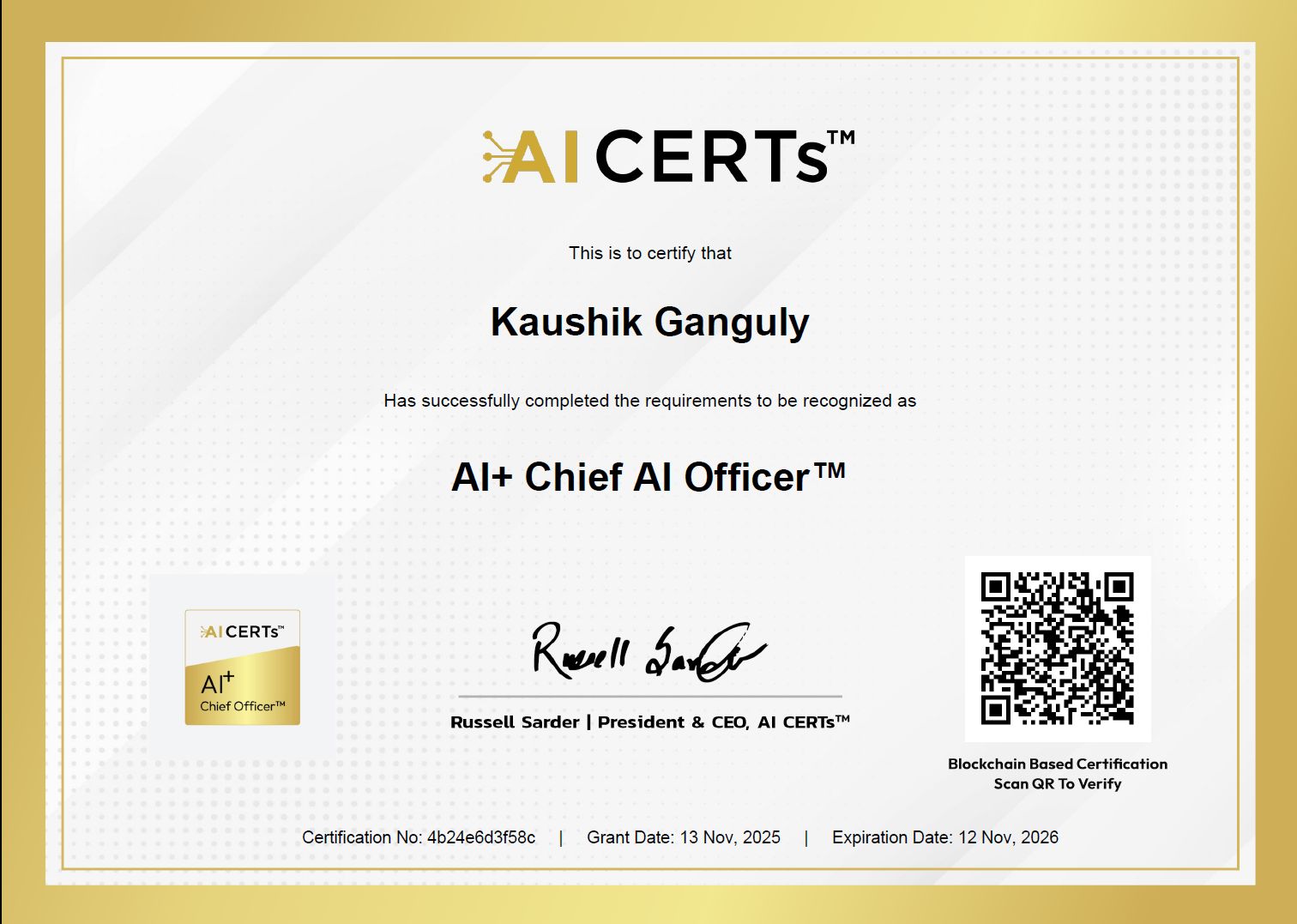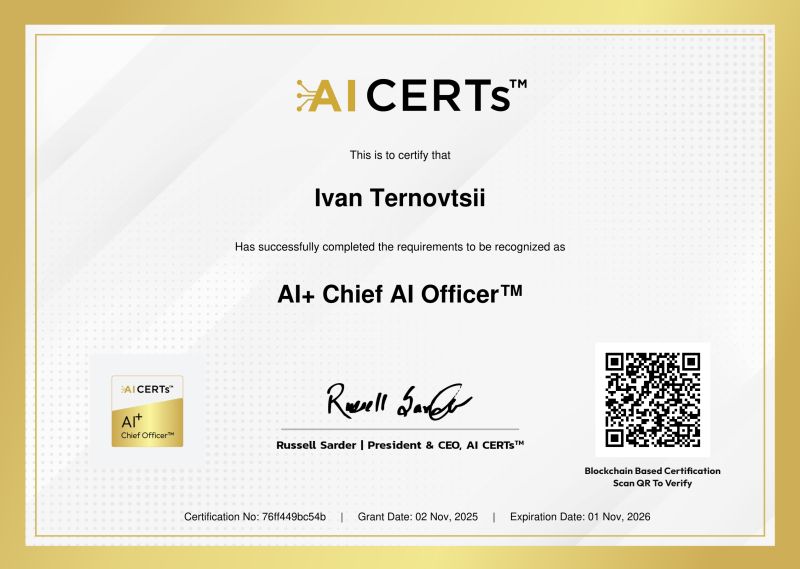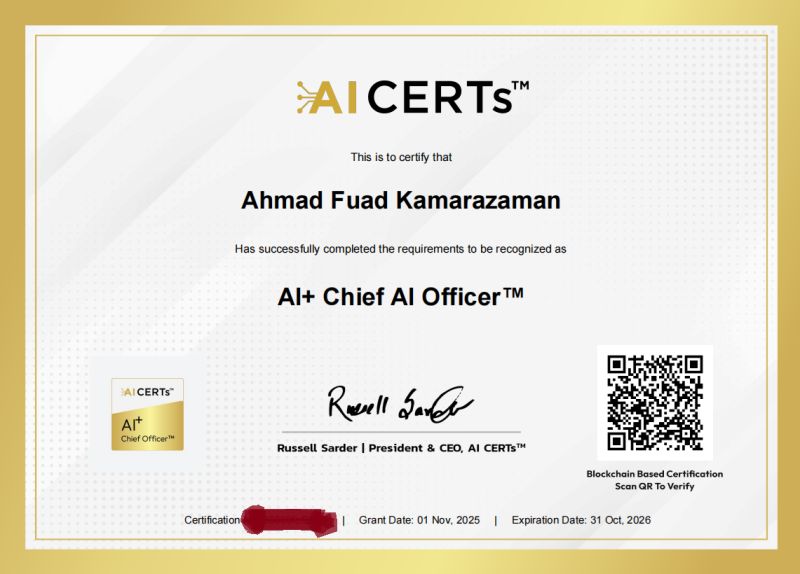Home » All Certifications » Business » AI+ Chief AI Officer™
$195.00
| Modules | Percentage |
|---|---|
| Foundations of AI and Leadership in the Digital Era | 11 |
| Crafting a Strategic AI Roadmap | 11 |
| Building a High-Performance AI Team | 13 |
| Ethics in AI Governance and Risk Management | 13 |
| Data-Driven Decision-Making and Business Impact Assessment | 13 |
| Driving Organization-Wide Adoption of AI | 13 |
| Leveraging Generative AI for Business Innovation | 13 |
| Capstone Project | 13 |




1.1 Defining Artificial Intelligence
1.2 Key AI Technologies
1.3 The CAIO’s Unique Role
1.4 Navigating Cybersecurity Challenges
1.5 Establishing Cross-Departmental Collaboration
1.6 Case Study
2.1 Aligning AI with Business Objectives
2.2 Setting Measurable Goals
2.3 Identifying Opportunities for Innovation
2.4 Engaging Stakeholders Across Departments
2.5 Monitoring Progress and Adjusting Plans
2.6 Case Study
3.1 Key Roles in an AI Team
3.2 Recruitment Strategies for Top Talent
3.3 Cultivating a Collaborative Culture
3.4 Continuous Learning Initiatives
3.5 Evaluating Team Performance
3.6 Case Study
4.1 Integrating Ethical Frameworks into AI Development
4.2 Conducting Ethical Impact Assessments
4.3 Developing Risk Mitigation Strategies
4.4 Establishing Transparency Protocols
4.5 AI Governance Models and Frameworks
4.6 Case Study
5.1 The Role of Data in AI Initiatives
5.2 Business Impact Assessment Frameworks
5.3 Measuring ROI from AI Investments
5.4 Hypothesis Testing in AI Projects
5.5 Resource Allocation Strategies
5.6 Case Study
6.1 Creating Change Management Strategies
6.2 Communicating the Value of AI Initiatives
6.3 Addressing Resistance to Change
6.4 Metrics for Success Evaluation
6.5 Case Study
7.1 Understanding Generative AI Capabilities
7.2 Identifying Areas for Innovation with Generative AI
7.3 Integrating Generative Solutions into Business Processes
7.4 Managing Risks Associated with Generative Applications
7.5 Creating Interdepartmental Synergies with Generative AI
7.6 Case Study
8.1 Project Overview and Objectives
8.2 Collaborative Work Sessions
8.3 Presentation Skills Workshop
8.4 Final Presentations and Constructive Feedback
8.5 Reflection on Key Takeaways from the Course Experience
Showcase your expertise to potential employers and professional connections.
Your certificate is secured on the blockchain for tamper-proof authenticity and can be downloaded as a high-quality PDF for personal records or professional sharing.
Celebrate your accomplishment with your network on all social platforms.
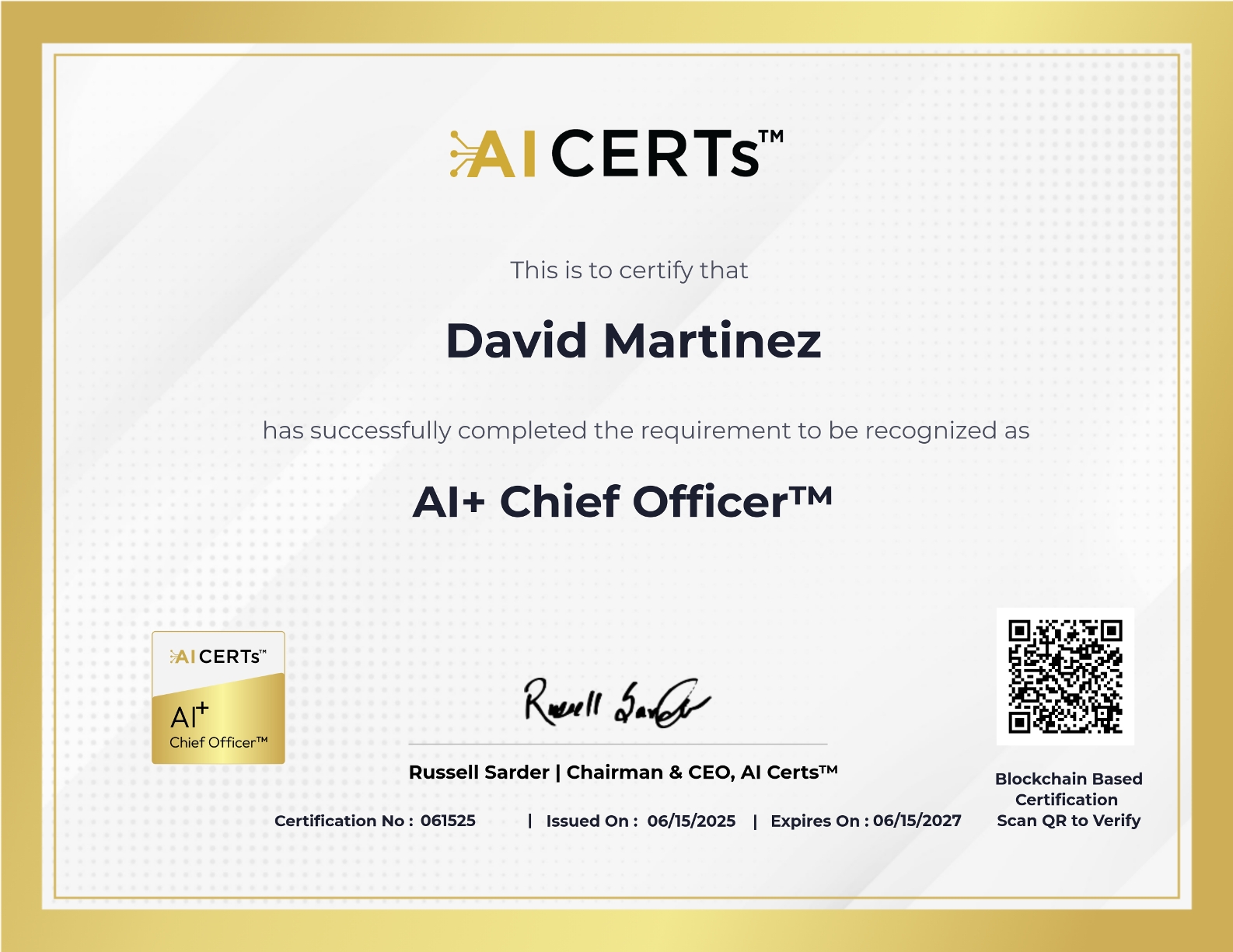



Oversees the data science department, ensuring the integration of AI and machine learning to optimize business decisions and processes.
Develops and executes AI-driven strategies that align with the organization's long-term goals, driving growth and competitive advantage.
Ensures that AI applications and practices comply with ethical standards and regulations, promoting responsible AI usage.
Oversees the seamless integration of AI technologies into various departments and business functions to enhance efficiency and productivity.
